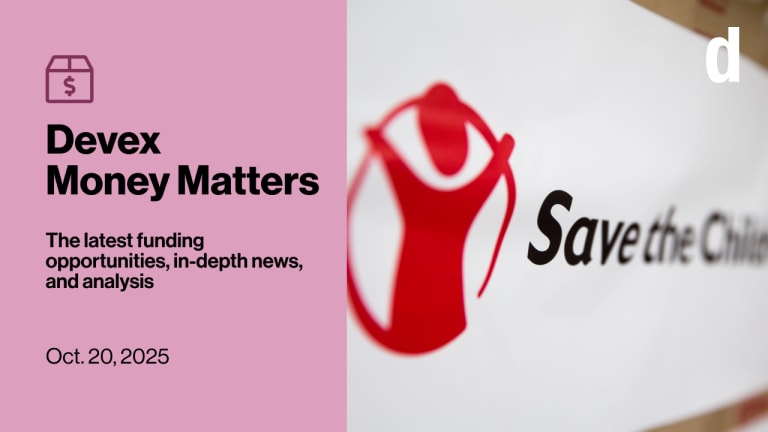
LONDON — The British media has a complex relationship with aid. From the Daily Express’ energetic campaign to “Stop The Foreign Aid Madness” to the constant accusation that “fat cats” are “soaking up” the budget, this is a sector that has never quite been able to convince the tabloids of its merits.
Amid a difficult political environment, attacks on aid did not abate during 2018, offering a colorful selection of headlines. Here are some you might have seen, but wish you hadn’t.
Most questionable use of the word ‘shock’
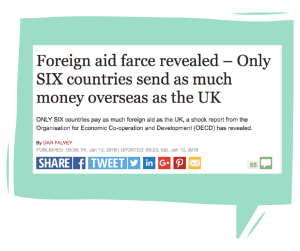
The Express was outraged to discover in January that “only SIX countries spend as much money on overseas aid as the U.K.,” with the news emerging from a “shock” Organisation for Economic Co-operation and Development report. Given the U.K. is the world’s fifth largest economy, that might not seem so unreasonable.
As it has held its position as one of the world’s most generous aid donors for years, and the Express has previously reported on the issue, it shouldn’t have been much of a shock either.
Strangest objection
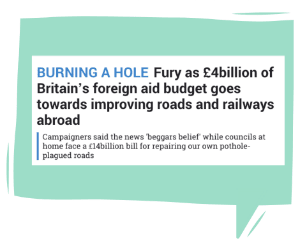
What’s The Sun got against road safety? A recent World Health Organization report found that road traffic accidents are now the leading killer of young people, and that the risk of road deaths is three times higher in developing countries. But The Sun said it was “sickening” that “£4 billion [$5.06 billion] of Britain’s aid budget goes towards improving roads and railways abroad” (it didn’t specify over what time period). Among the funding allocations it objected to was £37 million “spent on projects in India to improve access to better quality transport and upgrading state and rural roads,” and £700 million “to provide transport, water and electricity on an island the size of Birmingham on Lake Victoria in East Africa.”
Anyone else confused?
Biggest exaggeration
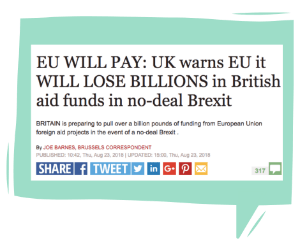
There were a lot of contenders for this crown, but the title goes once more to the Express, which told Brussels in capital letters: “EU WILL PAY: UK warns EU it WILL LOSE BILLIONS in British aid funds in no-deal Brexit.” One and a half billion, to be precise, so that should be singular, and the EU probably couldn’t have accepted it anyway. But don’t let that ruin a good headline.
Worst come-back
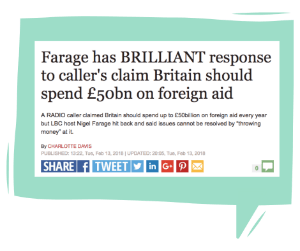
Nigel Farage had a “BRILLIANT response” to a suggestion from Steve, a radio phone-in guest, that the U.K. should up its aid budget, according to the Express. After the caller suggested that 0.7 percent of national income was too low, he replied — drum roll please — “but Steve, like so many things in life, just throwing money at something doesn’t really guarantee much of a result.” Burn.
Biggest misunderstanding
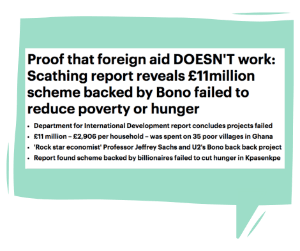
Everyone stop what you’re doing: The Daily Mail has “proof that foreign aid DOESN’T work.”
At least, that’s the conclusion it drew from the evaluation of a single £11 million project in Ghana which found it had “limited impact.” But that’s the point of monitoring and evaluation, isn’t it?
Most dubious comparison
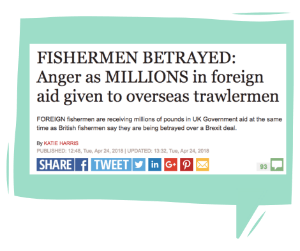
Ah, the dubious comparison — a favored technique of the headline writer which sees suffering overseas stacked up against problems at home. The artform was taken to new heights this year by the Express, which declared: “FISHERMEN BETRAYED: Anger as MILLIONS in foreign aid given to overseas trawlers.”
It went on to explain the issue in more detail: “Aid from the U.K. has funded fishing projects all over the world, including Nigeria, Malawi, Nepal and Zimbabwe,” at the same time as a “leaked Fisheries White Paper revealed the controversial quota regime [for fishing in British waters under an EU agreement] will not be significantly reformed” after Brexit.
A charmingly tenuous connection between two entirely unrelated issues.
Most misreported story
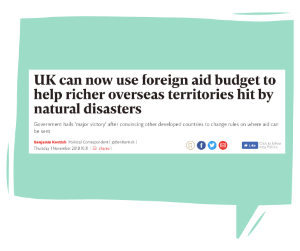
To end on a more serious note, there was one aid story this year that was continuously misreported by almost all major outlets. The OECD’s introduction of a “reverse graduation” mechanism — which allows for situations where a wealthier country’s national income falls back to official development assistance-eligible levels — was widely reported as a “victory” for the U.K. government, which has been campaigning to spend ODA on its hurricane-hit overseas territories.
In fact, the reverse graduation ruling is a separate issue that is unlikely to apply to any of the U.K.’s overseas territories, according to the minister in charge of the portfolio. The U.K. proposal has so far only been subject to a preliminary discussion, and it remains unclear if or when a decision will be reached, as Devex reported.
Here’s to 2019 — we’ll keep working hard.






